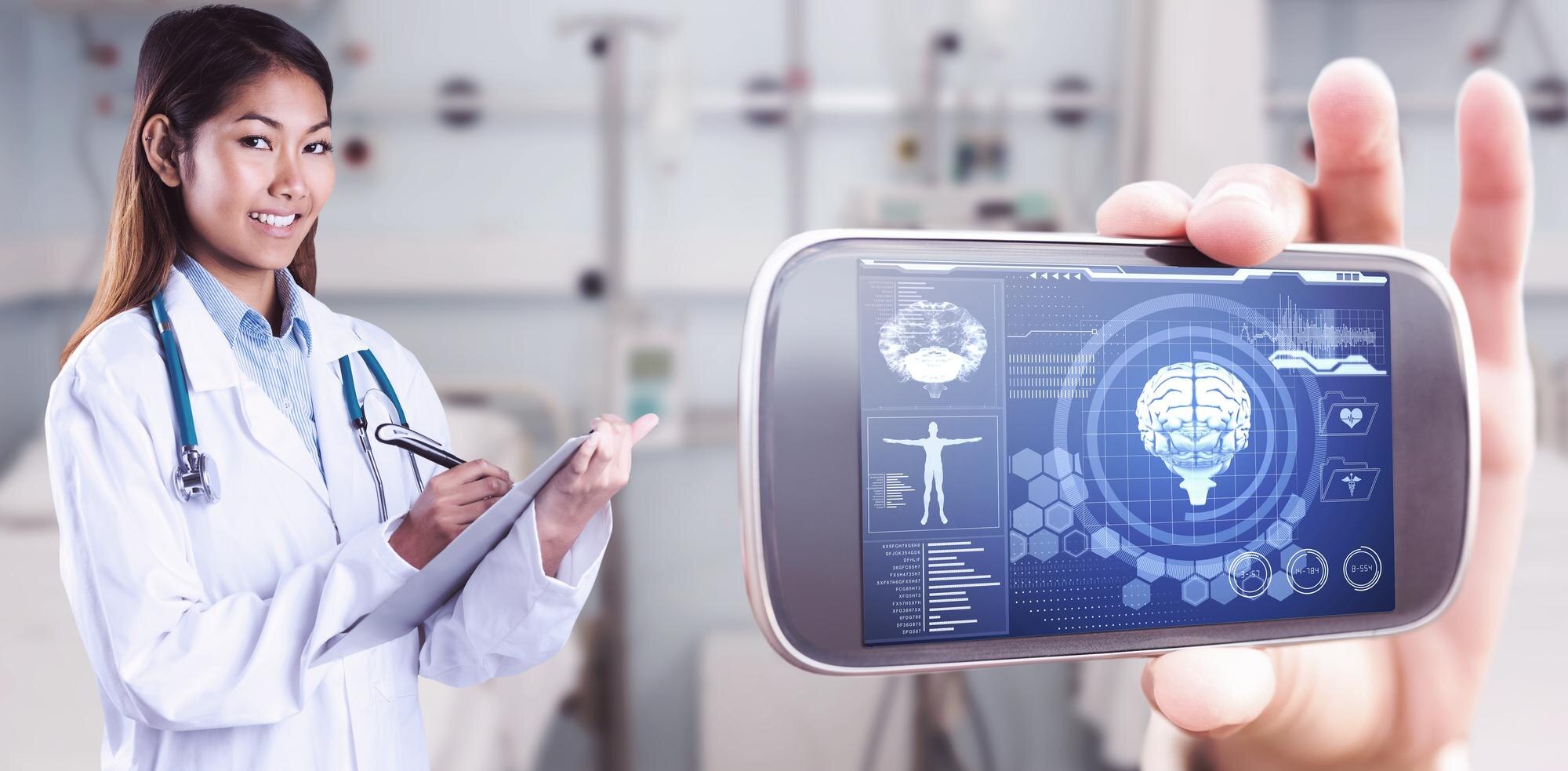Estimated reading time: 12 minutes
Key Takeaways
AI hybrid automation healthcare represents the cutting-edge integration of artificial intelligence technologies with human expertise to streamline healthcare operations.
AI hybrid automation is not about replacing healthcare professionals but enhancing their capabilities.
Facilities implementing AI hybrid solutions have reported efficiency improvements of up to 30 % in administrative tasks while simultaneously enhancing clinical outcomes.
Diagnostic accuracy increases by up to 33 % when AI tools are used in conjunction with physician expertise compared to either working independently.
AI-assisted healthcare services enable more personalised, responsive, and effective patient care.
Table of Contents
Introduction
AI hybrid automation healthcare represents the cutting-edge integration of artificial intelligence technologies with human expertise to streamline healthcare operations. This powerful combination is rapidly transforming how medical institutions operate, improving everything from patient care to administrative efficiency. The growing adoption of AI in healthcare has become a defining characteristic of modern medical systems, with artificial intelligence increasingly embedded in critical healthcare technology across the globe.
Recent studies show that AI hybrid automation is not about replacing healthcare professionals but enhancing their capabilities. By combining sophisticated AI algorithms with human clinical judgment, healthcare providers can deliver more accurate diagnoses, personalised treatment plans, and efficient operational systems. According to research published in the Journal of Medical Systems, facilities implementing AI hybrid solutions have reported efficiency improvements of up to 30 % in administrative tasks while simultaneously enhancing clinical outcomes.
This comprehensive guide explores the strategic implementation, key applications, and significant benefits of hybrid automation in healthcare. We will examine how this technological revolution is reshaping patient care, administrative processes, and the future direction of the entire healthcare industry.
Understanding Hybrid Automation
What Is Hybrid Automation?
Hybrid automation refers to sophisticated systems that blend robotic process automation (RPA) with AI capabilities while maintaining critical human oversight. These systems are particularly valuable in healthcare environments where complexity and sensitivity demand both technological efficiency and human judgment. Unlike fully automated solutions, hybrid automation acknowledges that healthcare decisions often involve nuance, empathy, and ethical considerations that AI alone cannot address.
The healthcare sector’s unique challenges, including strict regulatory requirements, diverse patient populations, and life-critical decisions, make it an ideal candidate for hybrid approaches rather than complete automation. This balanced approach ensures technology enhances rather than diminishes the human elements of healthcare delivery.
Traditional Automation vs. AI Hybrid Automation
Traditional automation in healthcare has typically focused on rule-based, repetitive tasks with limited flexibility. These systems follow pre-programmed instructions and struggle with exceptions or variations from expected patterns. Examples include basic appointment scheduling or simple data entry processes.
AI hybrid automation, by contrast, utilises advanced technologies like machine learning, natural language processing, and computer vision while integrating human collaboration to manage complex workflows. These systems can adapt to new information, learn from patterns, and handle the unpredictability inherent in healthcare environments. For instance, an AI-powered diagnostic system might flag potential issues in medical images, but a radiologist provides the final interpretation and clinical context.
The Synergy Between Artificial Intelligence Healthcare Systems and Human Expertise
The most effective artificial intelligence healthcare implementations recognise that optimal outcomes come from combining AI capabilities with human expertise. AI excels at processing vast datasets, identifying patterns, and performing repetitive tasks without fatigue. Meanwhile, healthcare professionals provide clinical judgment, ethical decision-making, emotional intelligence, and contextual understanding.
Research from Harvard Medical School highlights that diagnostic accuracy increases by up to 33 % when AI tools are used in conjunction with physician expertise compared to either working independently.
This complementary relationship allows each component to focus on its strengths, AI handles the computational heavy lifting, and humans provide the wisdom, experience, and compassion that remain essential to quality care.
Key Benefits of AI Hybrid Automation in Healthcare
Enhanced Efficiency
Automation in healthcare delivers substantial efficiency gains across numerous operational areas. Administrative tasks that once consumed hours of staff time can now be completed in minutes or seconds through AI-driven processes. Scheduling systems powered by machine learning can optimise appointment allocation based on provider availability, patient needs, and resource constraints, reducing wait times and maximising clinical capacity.
Claims processing represents another area where AI healthcare automation systems shine. These systems can automatically review claims for completion and accuracy, flag potential issues, and accelerate reimbursement cycles. One major hospital system reported reducing claims processing time by 63 % after implementing an AI-assisted verification system.
Clinical documentation, often cited as a significant contributor to physician burnout, has been revolutionised through hybrid automation. AI systems can now draft clinical notes based on recorded patient-provider conversations, which clinicians then review and finalise. This approach preserves accuracy while dramatically reducing documentation time, studies show physicians save an average of two to three hours daily when using such systems.
Improved Compliance
AI-driven healthcare innovations significantly enhance regulatory compliance by minimising human error in record-keeping and billing processes. Healthcare organisations face increasingly complex compliance requirements, and the consequences of violations can be severe. Automated systems create consistent, standardised documentation that adheres to regulatory guidelines while flagging potential compliance issues before they become problems.
Healthcare AI solutions excel at maintaining comprehensive audit trails that document all actions taken within the system. This capability is invaluable during regulatory inspections or audits, providing complete transparency into clinical and administrative processes. The automated tracking of medication administration, for example, ensures proper documentation of who administered which medication, when, and to whom, reducing medication errors by up to 87 % in some facilities.
Moreover, these systems can stay continuously updated with changing regulations, automatically implementing new requirements as they emerge. This dynamic capability ensures healthcare organisations maintain compliance even as the regulatory landscape evolves.
Better Patient Care
AI-assisted healthcare services enable more personalised, responsive, and effective patient care. Predictive analytics can identify patients at risk for specific conditions, enabling proactive interventions before health deteriorates. For example, AI algorithms can analyse patterns in vital signs to predict sepsis hours before traditional methods would detect it, allowing for earlier treatment and improved outcomes.
Healthcare AI applications improve diagnostic accuracy by analysing medical images, genetic information, and other clinical data with precision that complements human expertise. Studies demonstrate that AI-augmented diagnostic processes reduce missed diagnoses by up to 29 % compared to traditional methods alone.
Patient engagement also benefits from hybrid automation approaches. AI systems can provide personalised educational content, medication reminders, and post-discharge follow-up, while human providers deliver emotional support and complex clinical guidance. This combination ensures patients receive comprehensive care that addresses both medical and emotional needs.
Primary Applications of AI in Healthcare
AI-Powered Chatbots
AI-powered chatbots have emerged as valuable front-line tools for patient communication and preliminary triage. These sophisticated applications use natural language processing to understand patient queries, provide immediate responses to common questions, and direct patients to appropriate resources based on their needs. Available 24/7, these chatbots reduce wait times for basic information and free up staff to focus on more complex patient interactions.
These systems excel at handling routine inquiries about appointment scheduling, medication information, or general health questions. For instance, the NHS in the United Kingdom implemented AI chatbots that successfully answered over 70 % of common patient questions without human intervention, significantly reducing call centre volume.
Beyond simple Q&A functionality, advanced AI chatbots can also conduct preliminary symptom assessments, helping patients determine whether they should seek immediate care, schedule an appointment, or manage their condition at home. These capabilities provide patients with instant guidance while ensuring that urgent cases receive prompt attention.
Hybrid AI Chatbots
Hybrid AI chatbots represent the next evolution in patient communication technology, combining automated responses with strategic human intervention. These systems intelligently escalate complex or sensitive conversations to human staff when appropriate, ensuring patients receive the right balance of efficiency and empathy.
The hybrid approach excels in scenarios requiring nuanced communication or emotional intelligence. For example, when a patient expresses anxiety or confusion, the system can seamlessly transfer the conversation to a healthcare professional who can address the emotional aspects of the situation. This hand-off is typically invisible to the patient, creating a smooth experience.
Research shows that hybrid chatbot systems achieve significantly higher patient satisfaction scores (87 %) compared to purely automated solutions (62 %). This satisfaction stems from the system’s ability to provide immediate responses for straightforward matters while ensuring human connection for complex or sensitive issues.
Clinical Documentation
Clinical documentation represents one of the most significant administrative burdens in healthcare, with physicians spending up to two hours on paperwork for every hour of direct patient care. AI automation is transforming this process by capturing and organising clinical information more efficiently while maintaining accuracy.
Advanced speech recognition combined with natural language processing allows AI systems to transcribe and structure patient-provider conversations in real time. These systems can identify key clinical terms, categorise information according to standard medical documentation formats, and even suggest appropriate medical codes.
The hybrid approach maintains quality by keeping healthcare professionals in the review and approval loop. Clinicians can quickly edit AI-generated documentation rather than creating it from scratch, saving substantial time while ensuring accuracy. A 2023 study demonstrated that this approach reduced documentation time by 72 % and improved completeness of records by 24 % compared to traditional methods.
Healthcare Automation Solutions
Overview of Healthcare Automation Solutions
The landscape of healthcare automation solutions has expanded dramatically in recent years, encompassing everything from operational systems to clinical tools. AI-enabled electronic health records (EHR) represent one of the most widely adopted solutions, using intelligent algorithms to improve data entry, retrieval, and analysis. These advanced EHR systems can predict likely diagnoses based on patient history, suggest relevant tests, and highlight potential medication interactions.
Intelligent scheduling systems optimise provider time and facility resources by considering factors such as appointment type, provider specialisation, patient needs, and historical patterns. These systems can automatically adjust schedules when cancellations occur and prioritise urgent cases appropriately.
Clinical decision support tools represent another important category of healthcare AI systems. These applications analyse patient data against medical knowledge bases to provide evidence-based recommendations for diagnosis and treatment. By presenting relevant research, guidelines, and similar case outcomes, these tools help clinicians make more informed decisions, easing cognitive load for busy medical teams.
Video
FAQs
What is hybrid automation in healthcare?
Hybrid automation refers to sophisticated systems that blend robotic process automation (RPA) with AI capabilities while maintaining critical human oversight. These systems are particularly valuable in healthcare environments where complexity and sensitivity demand both technological efficiency and human judgment.
Will AI hybrid automation replace healthcare professionals?
Recent studies show that AI hybrid automation is not about replacing healthcare professionals but enhancing their capabilities. By combining sophisticated AI algorithms with human clinical judgment, healthcare providers can deliver more accurate diagnoses, personalised treatment plans, and efficient operational systems.
How does AI hybrid automation improve efficiency?
Administrative tasks that once consumed hours of staff time can now be completed in minutes or seconds through AI-driven processes, and one major hospital system reported reducing claims processing time by 63 % after implementing an AI-assisted verification system. Studies show physicians save an average of two to three hours daily when using AI-assisted clinical documentation systems.
How does AI support compliance and safety?
AI-driven healthcare innovations significantly enhance regulatory compliance by minimising human error in record-keeping and billing processes. Healthcare AI solutions excel at maintaining comprehensive audit trails and can reduce medication errors by up to 87 % in some facilities.
How does AI hybrid automation improve patient care?
Predictive analytics can identify patients at risk for specific conditions, enabling proactive interventions before health deteriorates. AI-augmented diagnostic processes reduce missed diagnoses by up to 29 % compared to traditional methods alone, while AI systems also support personalised education, reminders, and post-discharge follow-up.







